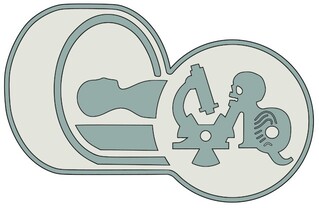The healthcare industry is continuously evolving and adopting new technologies to improve patient care and outcomes. One of the most significant trends in recent years is the growing use of home healthcare devices. These devices allow patients to monitor their health conditions from the comfort of their own homes, reducing the need for frequent visits to healthcare facilities and increasing convenience for both patients and healthcare providers.
One key aspect of the growing trend of home healthcare devices is clinical device management. This refers to the process of ensuring that these devices are properly maintained, updated, and monitored to ensure they are functioning effectively and providing accurate readings. Clinical device management is essential to the success and safety of home healthcare devices, as inaccurate or faulty readings could lead to incorrect diagnoses or improper treatment.
The use of home healthcare devices has become increasingly popular due to several factors, including the rising number of chronic diseases, the aging population, and the need to reduce healthcare costs. These devices allow patients with conditions such as diabetes, hypertension, and heart disease to monitor their vital signs, blood sugar levels, and other health metrics on a regular basis without having to visit a healthcare provider.
One of the key benefits of home healthcare devices is the ability to provide real-time data to healthcare providers, allowing for more timely and accurate decision-making. For example, a patient with diabetes can use a continuous glucose monitor to track their blood sugar levels throughout the day and share this information with their healthcare provider. This data can help providers adjust medication dosages, dietary recommendations, and other treatment strategies to better manage the patient’s condition.
Clinical device management plays a crucial role in ensuring the reliability and accuracy of home healthcare devices. This includes proper calibration of devices, regular maintenance and updates, and monitoring for any signs of malfunction or error. Healthcare providers must also educate patients on how to use these devices properly and interpret the data they provide.
As the use of home healthcare devices continues to grow, healthcare providers must invest in effective clinical device management strategies to ensure the safety and effectiveness of these devices. This includes implementing protocols for device maintenance, training staff on device usage and troubleshooting, and regularly auditing devices for accuracy and compliance with regulations.
In conclusion, the growing trend of home healthcare devices offers significant benefits for both patients and healthcare providers. However, proper clinical device management is essential to ensure the safety and effectiveness of these devices. By investing in strategies to maintain and monitor home healthcare devices, healthcare providers can help improve patient outcomes and reduce healthcare costs in the long term.
For more information visit:
MEDEQTECH
https://www.medeqtech.com/
0040727210655
COMUNA DENTA, STR PRINCIPALA NR.823, JUD. TIMIS
Produse si echipamente funerare. Distribuitor autorizat de produse biocide TP22 pentru imbalsamare – tanatopraxie – taxidermie. Reprezentant Hygeco Romania – Hygeco Post Mortem Assistance – Institutul Francez de Tanatopraxie.

